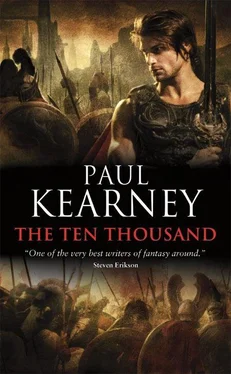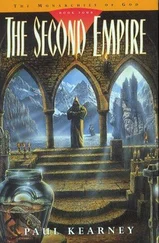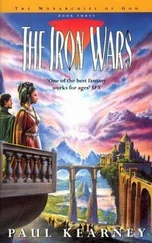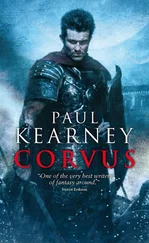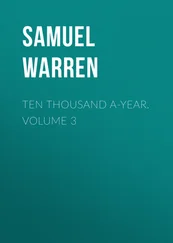Paul Kearney - The ten thousand
Здесь есть возможность читать онлайн «Paul Kearney - The ten thousand» весь текст электронной книги совершенно бесплатно (целиком полную версию без сокращений). В некоторых случаях можно слушать аудио, скачать через торрент в формате fb2 и присутствует краткое содержание. Жанр: Фэнтези, на английском языке. Описание произведения, (предисловие) а так же отзывы посетителей доступны на портале библиотеки ЛибКат.
- Название:The ten thousand
- Автор:
- Жанр:
- Год:неизвестен
- ISBN:нет данных
- Рейтинг книги:5 / 5. Голосов: 1
-
Избранное:Добавить в избранное
- Отзывы:
-
Ваша оценка:
- 100
- 1
- 2
- 3
- 4
- 5
The ten thousand: краткое содержание, описание и аннотация
Предлагаем к чтению аннотацию, описание, краткое содержание или предисловие (зависит от того, что написал сам автор книги «The ten thousand»). Если вы не нашли необходимую информацию о книге — напишите в комментариях, мы постараемся отыскать её.
The ten thousand — читать онлайн бесплатно полную книгу (весь текст) целиком
Ниже представлен текст книги, разбитый по страницам. Система сохранения места последней прочитанной страницы, позволяет с удобством читать онлайн бесплатно книгу «The ten thousand», без необходимости каждый раз заново искать на чём Вы остановились. Поставьте закладку, и сможете в любой момент перейти на страницу, на которой закончили чтение.
Интервал:
Закладка:
“What will you do now?” Rictus asked.
Tiryn did not look at him. “I don’t know. All my thoughts were bent on him. All my hopes. There is nothing else.”
“You could go home.”
“I have no home. I am between two worlds now.” One long-fingered hand came out from under the black robe and touched her belly. “In here, a child is growing whose father was Macht. In which world should he be born: in mine, or in his father’s?”
Rictus stared at her. “Jason’s child? Did he know?”
“I think perhaps he did. He had talked of a farm, a quiet life.” She laughed, and the sound dropped into something like a sob. “Jason, a farmer.”
Rictus stared out to sea, to where the dark guess of the mountains loomed at the edge of the world. That was home, that far place. It was home with nothing familiar in it, no man he called a friend, no blood his own.
“Stay with me,” he said to Tiryn. “I will look after you.”
“You! If it were not for you he would be alive yet!”
“I know. I owe you a debt of blood. I will repay it. Stay by me and I shall be a father to this child of yours and Jason’s. He was my friend. He would not want it to come into the world without one.” When she said nothing, he added. “Please, let me do this thing.”
“What-so you can sleep at night without his ghost to haunt you?”
Rictus hesitated. His jaw worked. “I have no one. I have no family to go back to, no reason to go home. If you would let me, I would have you stay with me, to repay my friend for his death, and to make a new family. To have a new life.”
Tiryn looked at him now. They were almost the same height, and he was as fair as she was dark.
“A new life?” she said. She touched her stomach again. “This, in here, is a new life. I will bear Jason’s child somewhere in the world where there are no Macht, no soldiers, where we can live in peace. I shall tell my child his father was a good man, who travelled with barbarians. Leave me be, Rictus. Go back to your soldiers. It is the only life you will ever know. It is the only thing you are fit for.” She walked away.
Rictus watched her go, the files of Macht spearmen making a lane for her to pass. Her mule was hobbled on the hill behind, and upon it Jason’s black armour glittered cold in the sun.
GLOSSARY
Aichme: A spearhead, generally of iron but sometimes of bronze. The spearhead is usually some nine inches in length, of which four inches is the blade.
Antimone: The veiled goddess, protector and guardian of the Macht. Exiled from heaven for creating the black Macht armour, she is the goddess of pity, of mercy, and of sadness. Her veil separates life from death.
Antimone’s Gift / the Curse of God: Black, indestructible armour given to the Macht in the legendary past by the goddess Antimone, created by the smith-god himself out of woven darkness. There are some five to six thousand sets of this armour extant upon the world of Kuf, and the Macht will fight to the death to prevent it falling into the hands of the Kufr.
Apsos: God of beasts. A shadowy figure in the Macht pantheon, reputed to be a goat-like creature who will avenge the ill-treatment of animals and sometimes transform men into beasts in revenge or as a jest.
Araian: The Sun, wife of Gaenion the Smith.
Archon: A Kufr term for a military officer of high rank, a general of a wing or corps.
Bel: The all-powerful and creative god who looks over the Kufr world. Roughly equivalent to the Macht “God,” but gentler and less vindictive.
Carnifex: An army physician.
Centon: Traditionally the number of men who could be fed from a single centos, the large black cauldron mercenaries eat from. It approximates one hundred men.
Chiton: A short-sleeved tunic, open at the throat, reaching to the knee.
Gaenion: The smith-god of the Macht, who created the Curse of God for Antimone, who wrought the stars and much of the fabric of Kuf itself. He is married to Araian, the sun, and his forges are reputed to be upon the summit of Mount Panjaeos in the Harukush.
Goatherder tribes: Less sophisticated Macht who do not dwell in cities but are nomadic hill-people.
They possess no written language, but have a large hoard of oral culture.
Goatmen: Degenerate savages who belong to no city, and live in a state of brutish filth. They wear goatskins by and large, and keep to the higher mountain-country of the Macht lands.
Hell: The far side of the Veil. Not hell in the Christian sense, but an afterlife whose nature is wholly unknowable.
Honai: Traditionally, a Kefren word meaning finest. It is a term used to describe the best troops in a King’s entourage, not only his bodyguards, but the well-drilled professional soldiers of the Great King’s household guard.
Hufsan / Hufsa: Male and female terms for the lower-caste inhabitants of the Empire, traditionally mountain-folk of the Magron, the Adranos, and the Korash. They are smaller and darker than the Kefren, but hardier, more primitive, and less cultured, preferring to preserve their records through storytelling rather than script.
Isca: A Macht city, destroyed by a combination of her neighbours in the year before the Battle of Kunaksa. The men of Isca were semi-professional warriors who trained incessantly for war and had a habit of attacking their neighbours. Legend has it the founder of Isca, Isarion, was a protege of the god Phobos.
Juthan: The squat, grey-skinned slave-race of the Asurian Empire. They are a stubborn, secretive and hardy folk, and were one of the last peoples to be conquered by the Great Kings.
Kefren: The peoples of the Asurian heartland, who led the resistance to the Macht in the semi-legendary past, and then established an Empire on the back of that achievement. Throughout the Empire they are a favoured race, and have become a caste of rulers and administrators.
Kerusia: In Machtic, the word denotes a council, and is used to designate the leaders of a community. In mercenary circles it can also refer to a gathering of generals, sometimes but not always elected by common consent.
Komis: The linen head-dress worn by the nobility of the Asurian Empire. It can be pulled up around the head so that only the eyes are visible, or can be loosed to reveal the entire face.
Kuf: The world, the earth, the place of life set amid the stars under the gaze of God and his minions.
Kufr: A derogatory Macht term for all the inhabitants of Kuf who are not of their own race.
Mora: A formation of ten centons, or approximately one thousand men.
Mot: The Kufr god of barren soil, and thus of death.
Niscian: A breed of horse from the plains of Niseia, reputedly the best warhorses in the world, and certainly the greatest in stature. Mostly black or bay, and over sixteen hands in height, they are the mounts of Kings and Kefren nobility, and are rarely seen outside the Asurian heartland.
Obol: A coin of small value, made of bronze.
Ostrakr: The term used for those unfortunates who have no city as their own, either because they have been exiled, their city has been destroyed, or they have taken up with mercenaries.
Othismos: The name given to the heart of hand-to-hand battle, when two bodies of heavy infantry meet.
Paean: A hymn, usually sung upon the occasion of a death. The Macht sing their Paean going into battle, to prepare themselves for their own demise.
Panoply: The name given for a full set of heavy infantry accoutrements, including a helm, a cuirass, a shield, and a spear.
Pasang: One thousand single paces. Historically, one mile is a thousand double-paces of a Roman Legionary, thus a pasang is half a mile.
Phobos and Haukos: The two moons of Kuf. Phobos is the larger and is pale in colour. Haukos is smaller and pink or pale red in colour. Also, the two sons of the goddess Antimone. Phobos is the god of fear, and Haukos the god of hope.
Читать дальшеИнтервал:
Закладка:
Похожие книги на «The ten thousand»
Представляем Вашему вниманию похожие книги на «The ten thousand» списком для выбора. Мы отобрали схожую по названию и смыслу литературу в надежде предоставить читателям больше вариантов отыскать новые, интересные, ещё непрочитанные произведения.
Обсуждение, отзывы о книге «The ten thousand» и просто собственные мнения читателей. Оставьте ваши комментарии, напишите, что Вы думаете о произведении, его смысле или главных героях. Укажите что конкретно понравилось, а что нет, и почему Вы так считаете.
